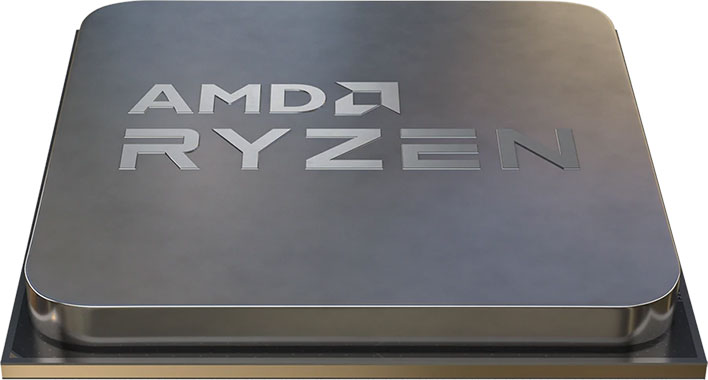AMD Zen 4 Rumors Hint At Hefty 20 Percent IPC Performance Lift Over Zen 3

AMD and Intel are in a dogfight in the CPU space, both for the performance crown and market share. It actually was not much of fight before Zen arrived a few years ago. As we look ahead to Zen 4, AMD is highly competitive again (reminiscent of the early Athlon 64 days, but even more so now), and could maintain the overall performance lead for at least another generation if the latest leak is true.
Nothing is certain of course, and Intel is not exactly standing pat—it has Alder Lake-S on the horizon, which will combine high performance cores with power efficient cores in the same package. Alder Lake-S will also introduce consumer support for PCI Express 5.0 whereas Zen 4 is rumored to stick with PCIe 4.0 on the consumer side, and DDR5 memory.
The move to an enhanced 10-nanometer SuperFin manufacturing process should also pay dividends. But will it all be enough to leap ahead of AMD? Time will tell, but Intel has its work cut out. The latest rumor has Zen 4 delivering a sizable 20 percent gain in IPC (instructions per clock) performance over the current generation Zen 3 architecture, and maybe even higher.
That is around the same IPC bump we got from Zen 3 over Zen 2. To do that yet again would be intriguing, because AMD really hit its stride with Zen 3 and its Ryzen 5000 series processors. You can check out our Core i9-11900K and Core i5-11600K review to see how Intel's current-generation Rocket Lake CPUs compare to Zen 3, but the short and sweet of it is, the two architectures trade blows in single-threaded performance, while Zen 3 owns the multi-core performance crown.
Rocket Lake is at a disadvantage in multi-threaded workloads because it only scales to eight cores and 16 threads, whereas Zen 3 goes up to 16 cores and 32 threads within the Ryzen 5000 series.
What the next generation holds remains to be seen, but according to the same rumor, AMD's socket AM5 is built to natively support chips all the way up to 170W, which paves the way some very high end CPU hardware. And on the lucrative server side, the rumor points to a huge 50 percent performance per watt improvement over Milan.
One thing is for sure, next year is going to be another interesting one, in terms of AMD and Intel battling it out. New sockets, new technologies, and of course new processors will ensure we will have much to discuss and analyze in 2022.

